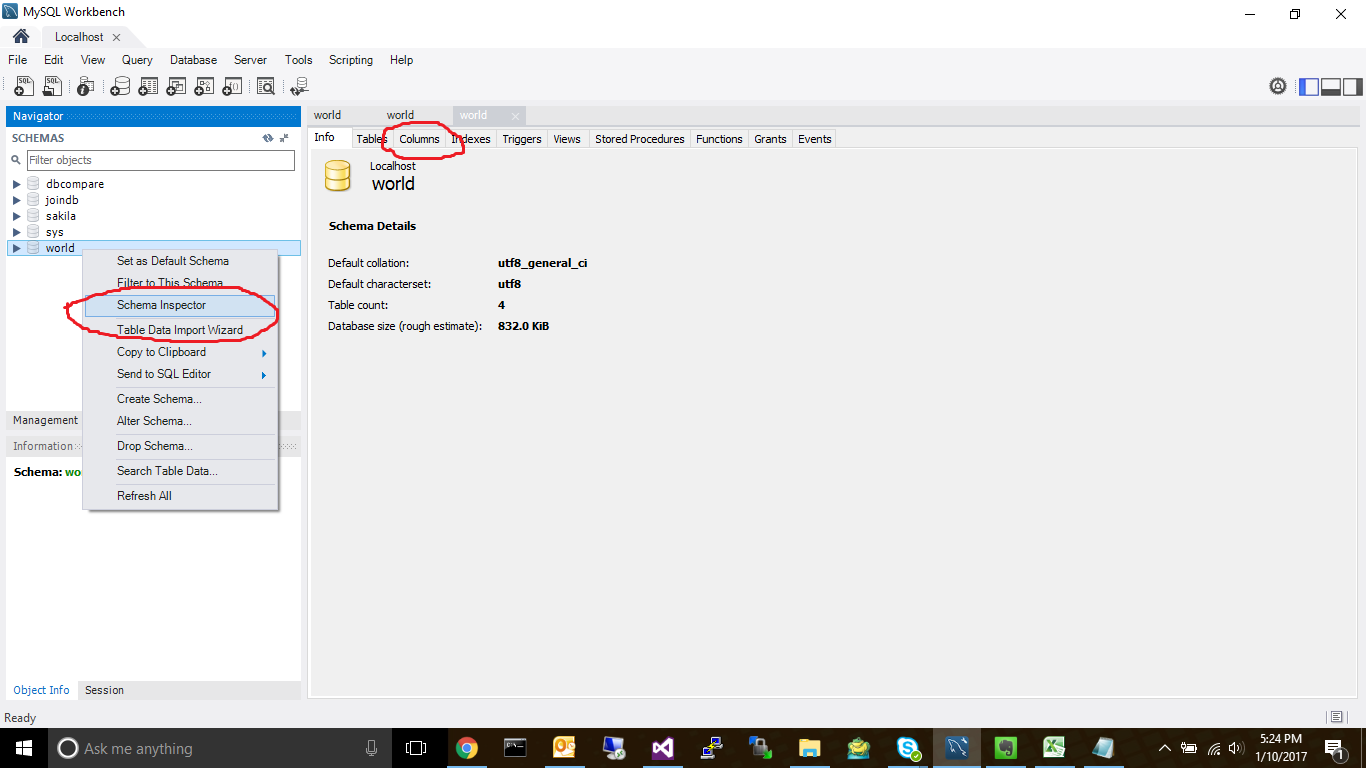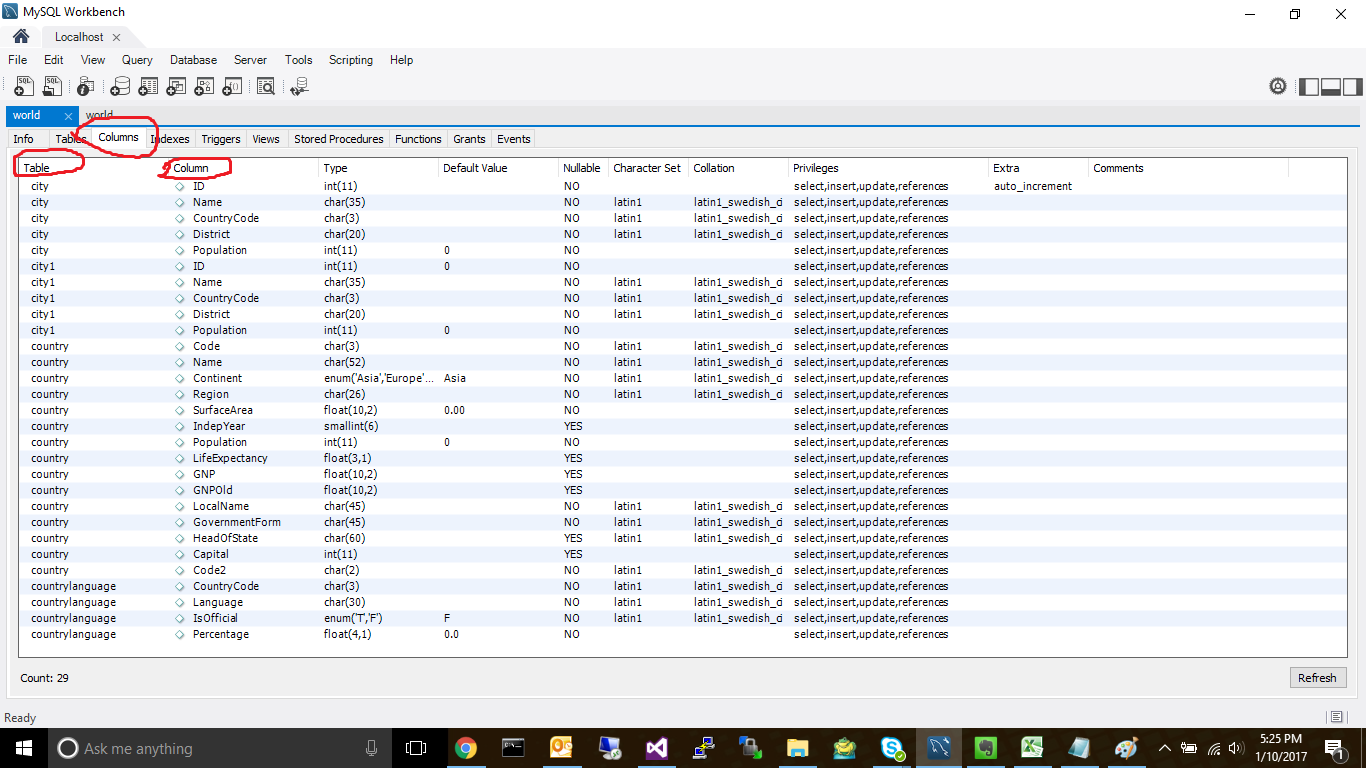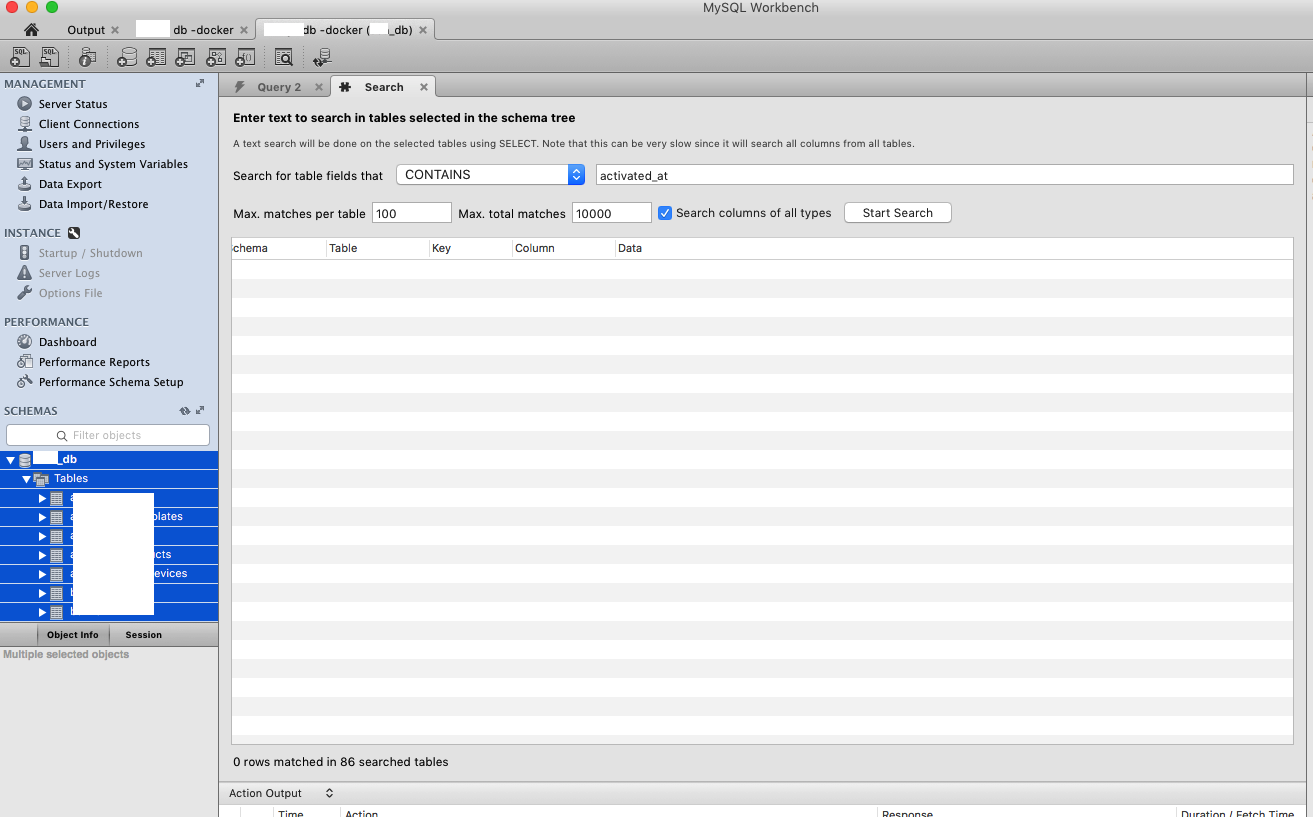If you know database name, you can find the column name using workbench GUI:
- Right click on the
database name and select Schema Inspector:
 2. Select
2. Select Columns tab on the header. There you will find all the column details with table name.

If you want to search in all the databases, then you may use information_schema.columns
desc information_schema.columns;
+--------------------------+---------------------+------+-----+---------+-------+
| Field | Type | Null | Key | Default | Extra |
+--------------------------+---------------------+------+-----+---------+-------+
| TABLE_CATALOG | varchar(512) | NO | | | |
| TABLE_SCHEMA | varchar(64) | NO | | | |
| TABLE_NAME | varchar(64) | NO | | | |
| COLUMN_NAME | varchar(64) | NO | | | |
| ORDINAL_POSITION | bigint(21) unsigned | NO | | 0 | |
| COLUMN_DEFAULT | longtext | YES | | NULL | |
| IS_NULLABLE | varchar(3) | NO | | | |
| DATA_TYPE | varchar(64) | NO | | | |
| CHARACTER_MAXIMUM_LENGTH | bigint(21) unsigned | YES | | NULL | |
| CHARACTER_OCTET_LENGTH | bigint(21) unsigned | YES | | NULL | |
| NUMERIC_PRECISION | bigint(21) unsigned | YES | | NULL | |
| NUMERIC_SCALE | bigint(21) unsigned | YES | | NULL | |
| DATETIME_PRECISION | bigint(21) unsigned | YES | | NULL | |
| CHARACTER_SET_NAME | varchar(32) | YES | | NULL | |
| COLLATION_NAME | varchar(32) | YES | | NULL | |
| COLUMN_TYPE | longtext | NO | | NULL | |
| COLUMN_KEY | varchar(3) | NO | | | |
| EXTRA | varchar(30) | NO | | | |
| PRIVILEGES | varchar(80) | NO | | | |
| COLUMN_COMMENT | varchar(1024) | NO | | | |
| GENERATION_EXPRESSION | longtext | NO | | NULL | |
+--------------------------+---------------------+------+-----+---------+-------+
21 rows in set (0.16 sec)
Use this query to find the column notification, this will give you database name, table name and column name.
select table_schema, table_name, column_name from information_schema.columns where column_name like '%notification%';
I hope this will help you!!



